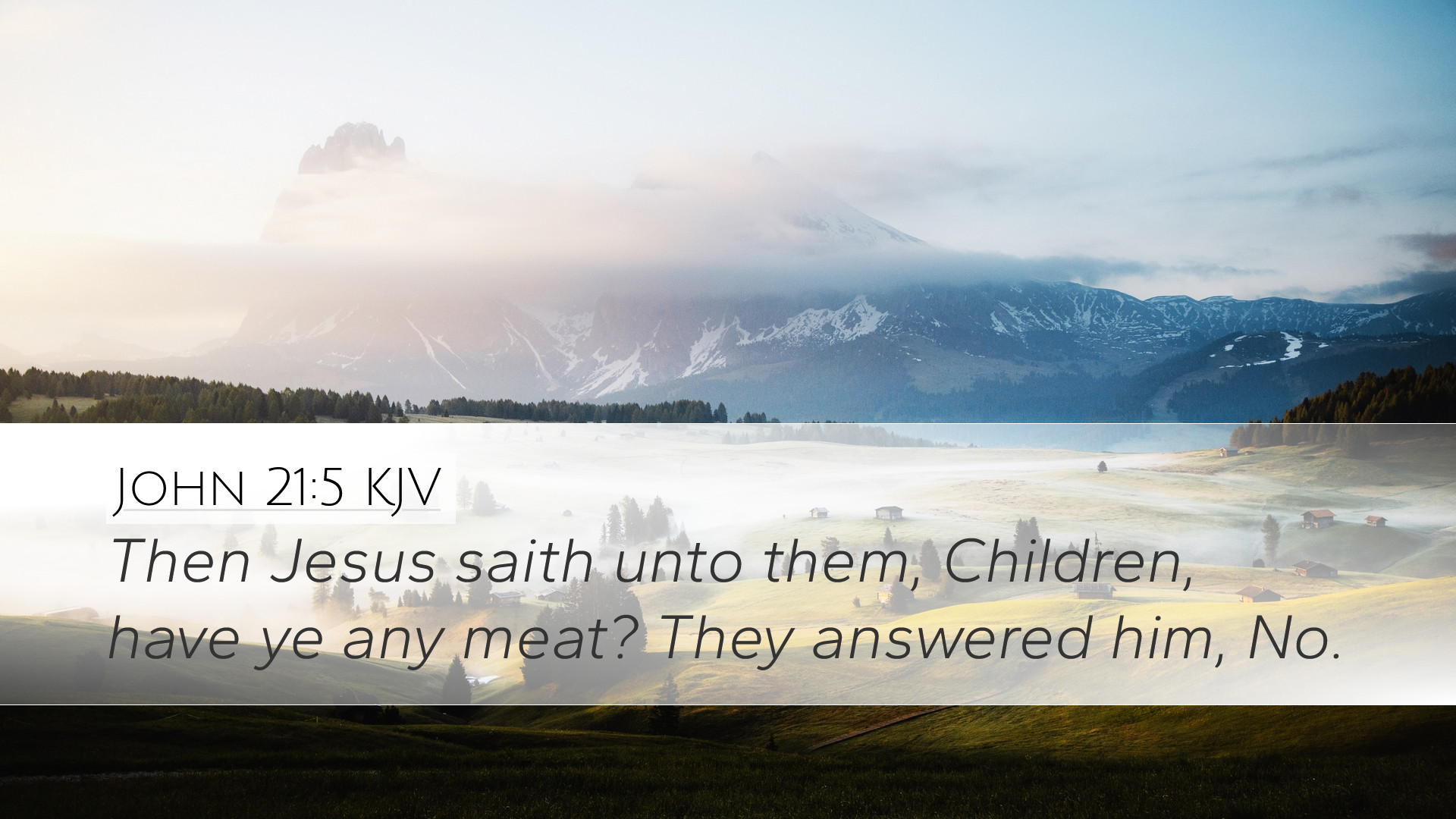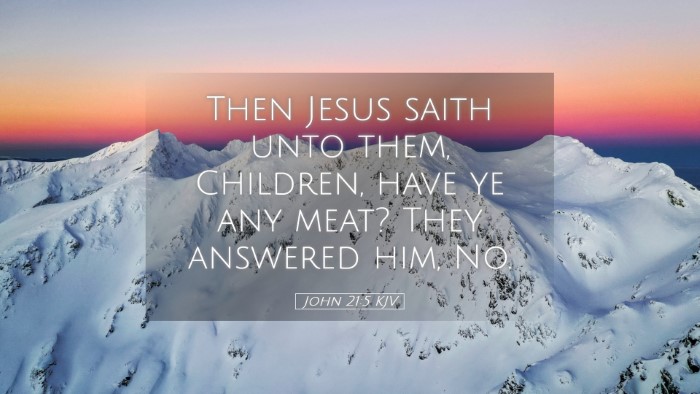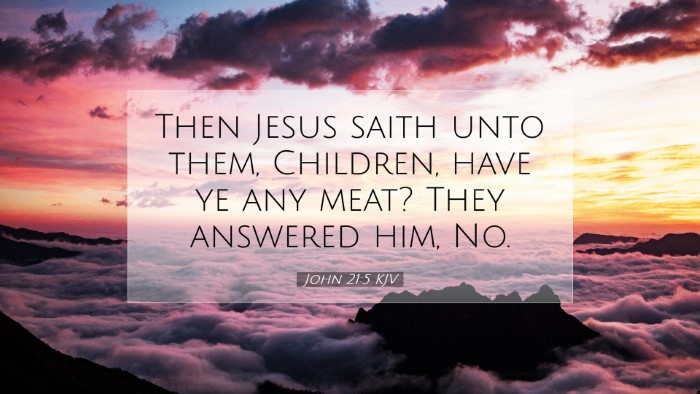Old Testament
Genesis Exodus Leviticus Numbers Deuteronomy Joshua Judges Ruth 1 Samuel 2 Samuel 1 Kings 2 Kings 1 Chronicles 2 Chronicles Ezra Nehemiah Esther Job Psalms Proverbs Ecclesiastes Song of Solomon Isaiah Jeremiah Lamentations Ezekiel Daniel Hosea Joel Amos Obadiah Jonah Micah Nahum Habakkuk Zephaniah Haggai Zechariah MalachiJohn 21:5
John 21:5 KJV
Then Jesus saith unto them, Children, have ye any meat? They answered him, No.
John 21:5 Bible Commentary
Commentary on John 21:5
Verse: John 21:5 - "Then Jesus said to them, 'Children, do you have any fish?' They answered Him, 'No.'
Introduction
This particular verse comes at a pivotal moment in the Gospel of John, following the resurrection of Jesus. The scene is set on the shores of the Sea of Tiberias, where the disciples are engaged in a futile night of fishing. It captures themes of responsibility, recognition of Jesus, and providential care, making it significant for believers today.
Context and Setting
John 21 concludes the Gospel of John, situating the narrative after the resurrection. The disciples, observing a deep sense of disorientation and loss after the crucifixion, return to their former fishing professions (John 21:3). The question posed by Jesus, "Children, do you have any fish?" can be interpreted as both literal and symbolic.
Insights from Commentators
Matthew Henry
Henry emphasizes the tender address of Jesus calling His disciples "Children," reflecting both a familial bond and a reminder of their spiritual dependence on Him. He points out the failure of the disciples in their fishing endeavor as a metaphor for spiritual barrenness without Christ. Henry suggests that this verse illustrates the futility of human effort in the absence of divine guidance.
Albert Barnes
The commentary by Barnes highlights Jesus' inquiry regarding their catch. He interprets this question as a means to draw attention to their lack of success, explicitly stating that the disciples were fishermen yet had caught nothing. This moment serves to show the power of Jesus, as He is about to instruct them on how to achieve success in their fishing, representing the transition from physical labor to divine intervention.
Adam Clarke
Clarke provides a detailed analysis of the word "Children," indicating that it is a term of endearment. He suggests that Jesus' question serves as a test for the disciples, inviting them to reflect upon their failure and their reliance on Him. Clarke emphasizes that the response "No" reflects both their physical shortage and a symbolic acknowledgment of spiritual need. This honest admission points to the requirement of divine assistance in all endeavors.
Theological Implications
This verse suggests profound theological implications for the church and individuals. The question posed by Jesus underscores an overarching theme of reliance: without Jesus' guidance, efforts can lead to disappointment. It also calls to attention the necessity of obedience to His voice, which will lead to fruitful outcomes. The conversation reveals God's loving patience and readiness to engage with His followers even in their discouragement.
Application for Today
For pastors, this verse can be a source of encouragement when leading congregations that may feel spiritually barren. It serves as a reminder to invite Jesus into all areas of life, whether personal or communal. The call to honesty in acknowledging "No" is vital; it encourages transparency in the face of struggles. For students of theology, this passage models the importance of understanding scripture within its context and recognizing the depth of spiritual truth encapsulated in simple narratives.
Conclusion
In John 21:5, we find a profound encounter between Jesus and His disciples, rich with meaning. Through the insights of Matthew Henry, Albert Barnes, and Adam Clarke, we receive a comprehensive understanding of the passage’s significance, challenging us to acknowledge our limitations and rely on the power of Christ for transformation and fulfillment. The beauty of this exchange is not simply in the physical action of fishing, but in the illuminating reminder of the spiritual sustenance we require. This verse beckons all believers to respond to Christ's call and trust in His providential care.


